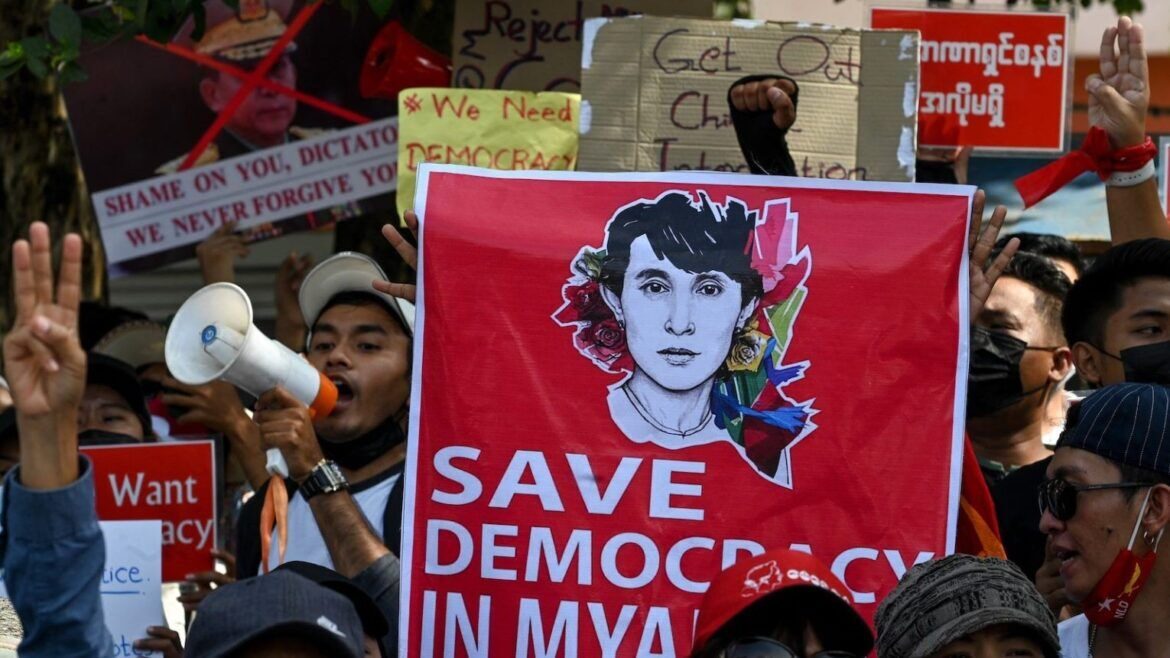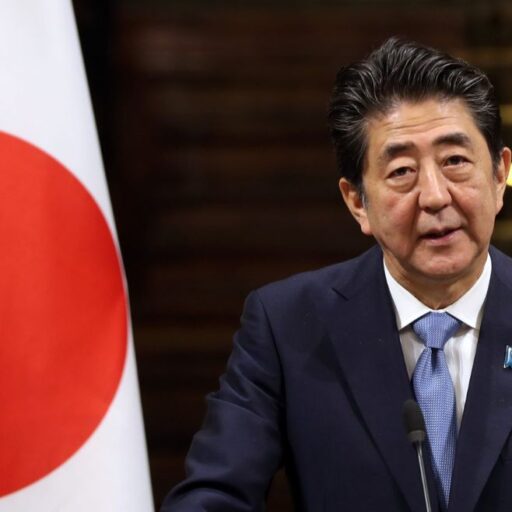The military coup in Myanmar has generated vigorous debates on China’s role in the domestic politics of the Southeast Asian country.
There is speculation that the coup itself was a consequence of State Counselor Aung San Suu Kyi moving closer to China and that the Myanmar military (Tatmadaw) was deeply uncomfortable with such a development.
For instance, there have been arguments that Suu Kyi’s charity has received donations from Chinese state-owned companies. However, the foundation has also received “funds from within the country and from friends of Burma abroad.”
Since the coup, the military has reportedly detained executives of Suu Kyi’s foundation.
There are also reports that Suu Kyi had agreed to take back Rohingya refugees from Bangladesh as a result of Chinese-facilitated negotiations. Officials from Myanmar and Bangladesh met in January to discuss ways to start the repatriations this June, which was reportedly not met with approval from the Tatmadaw leadership.
However, if Suu Kyi was indeed favorably inclined toward a Chinese-mediated solution to the Rohingya crisis, moving away from such an agreement would mean a loss of face for China. This implies that the Tatmadaw will have to make strenuous efforts such as scaling up projects under the China-Myanmar Economic Corridor or prioritizing Chinese imports and investments to appease Beijing.
While these arguments are speculative at best, there are indeed growing concerns pertaining to Chinese policies in Myanmar.
There have been prolonged tensions between the Tatmadaw and the various ethnic groups in Myanmar. Such friction has often allowed Beijing to exercise influence over Naypyidaw.
The 30,000-strong United Wa State Army operating in northeastern Myanmar has reportedly been receiving substantial support from China. Reportedly, Chinese-made weapons have also been supplied to the Arakan Army.
Last June, the Thai military and police “seized a large cache of Chinese-made weapons” destined for Myanmar. Myanmar military leader Min Aung Hlaing has also remarked that “terrorist organizations active in Myanmar are backed by strong forces” and that a “foreign country is behind the Arakan Army.”
China is an important player in Myanmar’s ethnic peace process. In the past Beijing has covered costs for the Ethnic Armed Organizations of the Federal Political Negotiation and Consultative Committee to attend the Myanmar Union Peace Conference.
At the same time, China has also sought to diminish the influence of Western countries in Myanmar, in particular of the United States. For instance, in 2016, the Chinese ambassador to Myanmar urged his American counterpart to refrain from traveling to such states as Kachin and Shan in order to “respect China’s interests.”
It appears that Beijing is using its position of a pre-eminent player in the peace process as leverage in its interactions with the Tatmadaw as well as the ethnic groups.
There is also some unease over China’s economic activities in Myanmar. Even though China is one of the country’s largest trade and investment partners, Chinese investments have generated concerns among the Myanmar people, as quite often, these investments tend to have lopsided benefits for the military families.
On the other hand, Chinese businesspeople were involved in developing the Shwe Kokko entertainment city at estimated costs of US$15 billion on the Myanmar-Thailand border in collaboration with the local border force, much to the discomfiture of the Tatmadaw.
Such Chinese activities in Myanmar are facilitating the continuation of fragmented sovereignty in the country.
If the Tatmadaw was indeed keen to respond to the Chinese presence in the Myanmar economy and limit its ability to influence the ethnic peace process, then the coup was certainly not the path to take.
The coup has elicited displeasure in the US, the European Union and even some countries in the Association of Southeast Asian Nations. This will allow China to gain more influence in Myanmar, as it will be the sole country with the economic heft to support the Tatmadaw and bail it out on international platforms.
China initially blocked a United Nations Security Council statement condemning the coup. Even when the UNSC did issue a statement calling for “the continued support of the democratic transition in Myanmar,” Beijing issued a separate statement calling for “dialogue and reconciliation in accordance with the will and interests of the people of Myanmar.”
While the Tatmadaw and its leaders may not be excessively dependent on the West’s financial interactions, the diversity of economic players in the Myanmar economy is contingent on a stable civilian government, which is no longer the case. Therefore, in the near future, Chinese interests will have an even greater impact on Myanmar’s political developments.
However, Beijing will have to counter the strong anti-Chinese sentiment among the Myanmar public. Last November, it was reported that China had been “building a high-tech wall along its 2,227-kilometer border with Myanmar” to control population flow from that country and prevent Chinese dissidents from fleeing. Beijing had to suspend construction of the wall after it received “letters of objection from the military.”
Further, Chinese state media outlets have defined the coup as a “cabinet reshuffle.” Not surprisingly, such policies have prompted protests in front of the Chinese Embassy in Yangon denouncing Beijing’s alleged support for the military.
Pro-democracy activists in Myanmar have called for solidarity from fellow activists in the “Milk Tea Alliance” countries. The Milk Tea Alliance hashtag originated in Thailand, Hong Kong and Taiwan as a response to social-media attacks from China. The fact that activists in Myanmar located their struggle as part of a larger struggle for democracy on the Chinese periphery needs to be noted.
There have also been reports that China has provided technical assistance to help the Tatmadaw build a firewall in order to block search engines, social-media websites, and virtual private networks (VPNs). While during the Cold War there were references to the Iron Curtain, today there is probably a new firewall emerging in continental Southeast Asia in the form of China’s potential to curtail information flows or support authoritarian regimes.
It is reported that the Tatmadaw (with the help of China) will enforce a cybersecurity bill to limit information flows and break down protests in the country. While such news reports remain unverified, the scale of the protests has increased, and it seems the Tatmadaw will require more than just Chinese firewalls to suppress the protesters.










